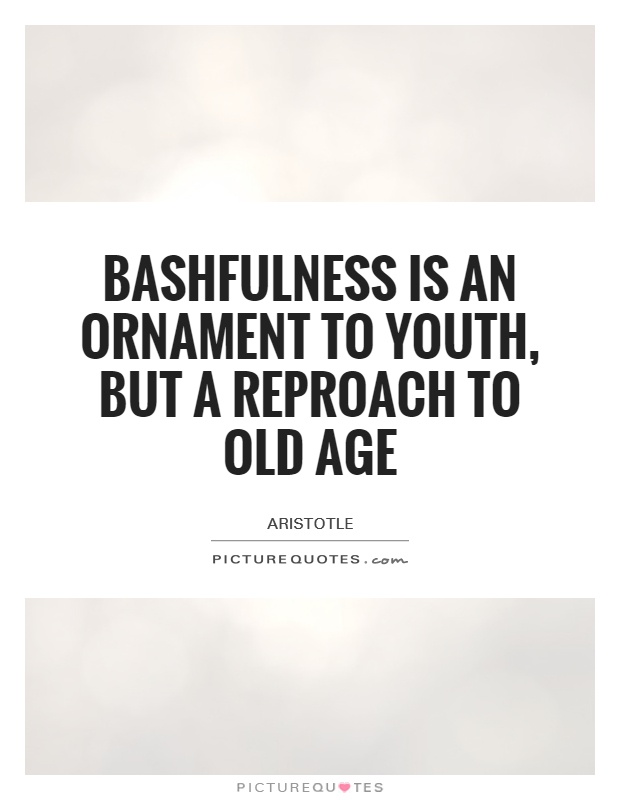Bashfulness is an ornament to youth, but a reproach to old age

Bashfulness is an ornament to youth, but a reproach to old age
In the context of Aristotle's philosophy, the statement "Bashfulness is an ornament to youth, but a reproach to old age" holds significant meaning. Aristotle, a renowned Greek philosopher, believed in the importance of moderation and balance in all aspects of life. He emphasized the idea of finding the mean between extremes, and this concept can be applied to the notion of bashfulness in different stages of life.In youth, bashfulness can be seen as a charming quality that reflects innocence, humility, and a sense of propriety. Young people are often shy and reserved in social situations, and this can be perceived as endearing and attractive. Aristotle would likely view bashfulness in youth as a virtue that demonstrates a sense of modesty and self-awareness. It can be seen as a sign of respect for others and a willingness to listen and learn from those with more experience.
However, as one grows older, Aristotle would argue that bashfulness can become a hindrance and a reproach. In old age, individuals are expected to have gained wisdom, confidence, and a sense of self-assuredness. Bashfulness in old age may be seen as a sign of insecurity, lack of assertiveness, and an unwillingness to engage fully in social interactions. Aristotle believed that as individuals mature and gain life experience, they should strive to cultivate virtues such as courage, wisdom, and self-confidence.












 Friendship Quotes
Friendship Quotes Love Quotes
Love Quotes Life Quotes
Life Quotes Funny Quotes
Funny Quotes Motivational Quotes
Motivational Quotes Inspirational Quotes
Inspirational Quotes